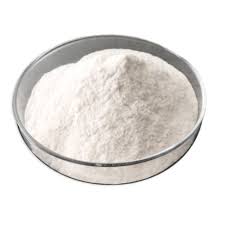
- +86-13363869198
- weimiaohb@126.com

Aug . 21, 2024 13:22 Back to list
Understanding the Role and Importance of Pharmaceutical Intermediates in Drug Development
Understanding Pharmaceutical Intermediates
Pharmaceutical intermediates play an essential role in the production of drugs, serving as the building blocks for the synthesis of active pharmaceutical ingredients (APIs). These intermediates are chemical compounds that undergo further chemical transformations to become a final pharmaceutical product. They are not active drugs themselves but are crucial for the manufacturing process of medications used in treating various health conditions.
Definition and Importance
Pharmaceutical intermediates are typically produced in the early stages of drug development and manufacturing. They can vary significantly in their chemical structure and properties, depending on the specific requirements of the API being synthesized. These intermediates are essential because they allow pharmaceutical companies to develop complex molecules systematically. The use of intermediates can streamline the production process, enhance efficiency, and reduce costs.
In many cases, intermediates are protected by patents, thus providing companies with a competitive advantage. This highlights their importance not only in manufacturing but also in the broader context of intellectual property in the pharmaceutical industry. The ability to produce unique intermediates can lead to the development of novel therapies and medications, which can be groundbreaking in the field of medicine.
Types of Pharmaceutical Intermediates
Pharmaceutical intermediates can be classified into various categories based on their functionality and the stage of synthesis they represent in the overall drug development process. Some common classes include
1. Chiral Intermediates These compounds have non-superimposable mirror images and are crucial for the synthesis of chiral drugs, which often exhibit different biological activities based on their orientation.
2. Building Blocks These are simpler organic compounds that serve as precursors in the synthesis of more complex molecules.
what is pharmaceutical intermediates

4. Linkers Used in bioconjugate chemistry, linkers help in connecting different bioactive molecules, aiding in the development of antibody-drug conjugates.
Synthesis of Pharmaceutical Intermediates
The synthesis of pharmaceutical intermediates involves a variety of chemical reactions, including nucleophilic substitutions, couplings, reductions, and oxidations. The choice of synthesis route and conditions depends on factors such as yield, cost-effectiveness, and environmental impact.
Advanced techniques, such as green chemistry, are increasingly being adopted to make the synthesis process more sustainable. Green chemistry focuses on minimizing waste, utilizing safe solvents, and developing energy-efficient reactions, thereby reducing the ecological footprint of pharmaceutical manufacturing.
Challenges in the Production of Intermediates
Manufacturing pharmaceutical intermediates comes with several challenges. Quality control is paramount, as impurities can lead to unsafe drug products. Strict regulatory standards govern the production of intermediates to ensure that they meet the required specifications. Additionally, companies face the pressure of time-to-market, where delays in production can significantly impact the availability of new therapies.
Moreover, the globalization of the pharmaceutical supply chain has increased complexities in sourcing raw materials and intermediates. For companies operating in different regions, ensuring consistent quality and compliance with local regulations is vital.
Conclusion
In conclusion, pharmaceutical intermediates are critical to the drug development process, serving as pivotal components in the synthesis of active pharmaceutical ingredients. Their significance cannot be understated, as they contribute to the efficiency of drug production and the development of innovative therapies. As the pharmaceutical industry continues to evolve, advancements in the synthesis and application of intermediates will play a key role in bringing safe and effective medications to the market. Understanding the intricacies of pharmaceutical intermediates not only benefits manufacturers but also enhances the overall efficacy and safety of the healthcare industry at large.
-
High-Quality GS-441524 for White Liquid Type Factories & Suppliers
NewsJul.29,2025
-
High-Quality Pharmaceutical Intermediates for Sale – Reliable Supply
NewsJul.29,2025
-
High-Quality Pharmaceutical Intermediates for Sale - Reliable Solutions
NewsJul.29,2025
-
High-Quality Pharmaceutical Intermediates Supplier for Global Market
NewsJul.28,2025
-
GS-441524 for White Liquid Type Factories – High Purity & Reliable Supply
NewsJul.28,2025
-
Buy 158861 67 7 Peptide for Effective Weight Loss and Muscle Gain
NewsJul.27,2025